 W
WThe body politic is a medieval metaphor that likens a nation to a corporation which had serious historical repercussions throughout recent history and therefore giving the Crown – "as a legal entity today the Crown as executive is regarded as a corporation sole or aggregate" – the status of a corporate entity. Maitland argues that the Crown is a convenient cover for ignorance and traces the legal term Crown as corporation sole originally from the 16th century and argues that it was both a political and legal ploy originally reserved for the monarch of the day with the combination of medieval Roman law amalgamated into the early medieval domain of early church property law. The modern understanding of the concept means a body politic comprises all the people in a particular country considered as a single group forming what we know as a nation. The analogy typically includes reference to the sovereign head of government as head of state, though the analogy may also be extended to other anatomical parts, as in political readings of Aesop's fable of "The Belly and the Members".
 W
WCriminalization or criminalisation, in criminology, is "the process by which behaviors and individuals are transformed into crime and criminals". Previously legal acts may be transformed into crimes by legislation or judicial decision. However, there is usually a formal presumption in the rules of statutory interpretation against the retrospective application of laws, and only the use of express words by the legislature may rebut this presumption. The power of judges to make new law and retrospectively criminalise behaviour is also discouraged. In a less overt way, where laws have not been strictly enforced, the acts prohibited by those laws may also undergo de facto criminalization through more effective or committed legal enforcement. The process of criminalization takes place through societal institutions including schools, the family, and the criminal justice system.
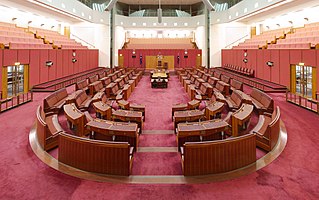 W
WIn politics, politicians are said to cross the floor if they change their party allegiance. Crossing the floor may mean changing to a second party after being elected as a member of a first party, or voting against the approved party lines. In Nigeria, the term crossing the carpet or carpet crossing is used.
 W
WA democratic intervention is a military intervention by external forces with the aim of assisting democratization of the country where the intervention takes place. Examples include intervention in Afghanistan and Iraq. Democratic intervention has occurred throughout the mid-twentieth century, as evidenced in Japan and Germany after World War II, where democracies were imposed by military intervention.
 W
WA diplomatic mission or foreign mission is a group of people from one state or an organization present in another state to represent the sending state or organization officially in the receiving state. In practice, the phrase diplomatic mission usually denotes the resident mission, namely the embassy, which is the main office of a country's diplomatic representatives to another country; this is usually, but not necessarily, in the receiving state's capital city. Consulates, on the other hand, are smaller diplomatic missions which are normally located in major cities of the receiving state. As well as being a diplomatic mission to the country in which it is situated, it may also be a non-resident permanent mission to one or more other countries. There are thus resident and non-resident embassies.
 W
WAn election is a formal group decision-making process by which a population chooses an individual or multiple individuals to hold public office.
 W
WAn extrajudicial killing is the killing of a person by governmental authorities without the sanction of any judicial proceeding or legal process. They often target political, trade union, dissident, religious and social figures.
 W
WHealth politics or politics of health is an interdisciplinary field of study concerned with the analysis of political power over the health status of individuals.
 W
WHealth security is a concept that encompasses activities and measures across sovereign boundaries that mitigates public health incidents to ensure the health of populations. It is an evolving paradigm within the fields of international relations and security studies. Proponents of health security posit that all states have a responsibility to protect the health and wellbeing of their populations. Opponents suggest health security impacts civil liberties and the equal distribution of resources.
 W
WHuman rights are moral principles or norms that describe certain standards of human behaviour and are regularly protected in municipal and international law. They are commonly understood as inalienable, fundamental rights "to which a person is inherently entitled simply because she or he is a human being" and which are "inherent in all human beings", regardless of their age, ethnic origin, location, language, religion, ethnicity, or any other status. They are applicable everywhere and at every time in the sense of being universal, and they are egalitarian in the sense of being the same for everyone. They are regarded as requiring empathy and the rule of law and imposing an obligation on persons to respect the human rights of others, and it is generally considered that they should not be taken away except as a result of due process based on specific circumstances.
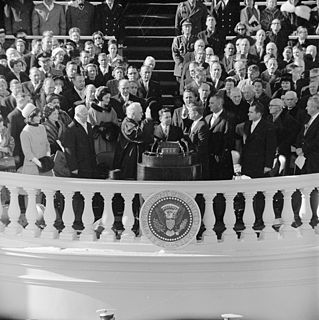 W
WIn government and politics, inauguration is the process of swearing a person into office and thus making that person the incumbent. Such an inauguration commonly occurs through a formal ceremony or special event, which may also include an inaugural address by the new official.
 W
WInternational relations (IR) or international affairs (IA), also known as international studies (IS), global studies (GS), or global affairs (GA), is the study of politics, economics and law on a global level. Depending on the academic institution, it is either a field of political science, an interdisciplinary academic field similar to global studies, or an independent academic discipline that examines social science and humanities in an international context.
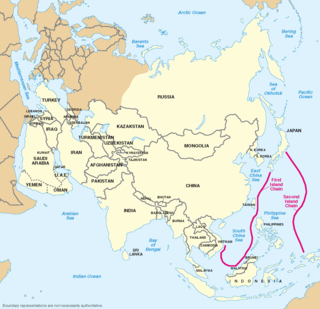 W
WThe Island Chain Strategy is a strategy first mentioned by American foreign policy commentator John Foster Dulles in 1951 during the Korean War. It suggests surrounding the Soviet Union and China by sea. The island chain concept did not become a major theme in American policy, but it has become a major fixation of both American and Chinese analysts to this day. For the U.S. the island chain strategy is a big part of the military of the United States's force projection in the Eastern part of Asia. For Chinese, the concept is used as part of their fears of encirclement by American forces. For both sides, the island chain strategy emphasizes the geographical and strategic importance of Taiwan.
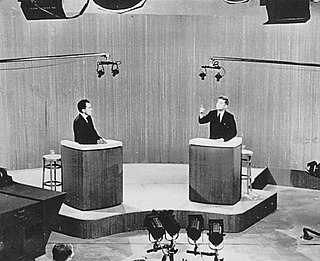 W
WA leaders' debate or presidential debate is a public debate held during a general election campaign, where the candidates expose their political opinions and public policy proposals, and criticism of them, to potential voters. They are normally broadcast live on radio, television and Internet. The events may be organized by media corporations or non-government organizations.
 W
WA political argument is an instance of a logical argument applied to politics. Political arguments are used by academics, media pundits, candidates for political office and government officials. Political arguments are also used by citizens in ordinary interactions to comment about and understand political events. More often than not, political arguments tend to be circular, repeating the same facts as premises under perhaps slightly different guises. Much political argument concerns issues of taxation and government spending.
 W
WA crisis is any event or period that will lead, or may lead, to an unstable and dangerous situation affecting an individual, group, or all of society. Crises are negative changes in the human or environmental affairs, especially when they occur abruptly, with little or no warning. More loosely, a crisis is a testing time or an emergency.
 W
WPolitical globalization refers to the growth of the worldwide political system, both in size and complexity. That system includes national governments, their governmental and intergovernmental organizations as well as government-independent elements of global civil society such as international non-governmental organizations and social movement organizations. One of the key aspects of the political globalization is the declining importance of the nation-state and the rise of other actors on the political scene. The creation and existence of the United Nations is called one of the classic examples of political globalization.
 W
WPolitical journalism is a broad branch of journalism that includes coverage of all aspects of politics and political science, although the term usually refers specifically to coverage of civil governments and political power.
 W
WPolitical philosophy is the philosophical study of government, addressing questions about the nature, scope, and legitimacy of public agents and institutions and the relationships between them. Its topics include politics, liberty, justice, property, rights, law, and the enforcement of laws by authority: what they are, if they are needed, what makes a government legitimate, what rights and freedoms it should protect, what form it should take, what the law is, and what duties citizens owe to a legitimate government, if any, and when it may be legitimately overthrown, if ever.
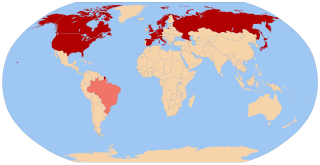 W
WPolitics of the International Space Station have been affected by superpower rivalries, international treaties and funding arrangements. The Cold War was an early factor, overtaken in recent years by United States distrust of China. The station has an international crew, with the use of their time, and that of equipment on the station, being governed by treaties between participant nations.
 W
WProto-fascism refers to the direct predecessor ideologies and cultural movements that influenced and formed the basis of fascism. A prominent proto-fascist figure is Gabriele D'Annunzio, the Italian nationalist whose politics influenced Benito Mussolini and Italian Fascism. Proto-fascist political movements include the Italian Nationalist Association, the German National Association of Commercial Employees and the German National People's Party.
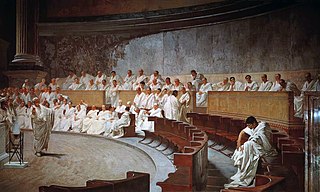 W
WPublic speaking is giving speech face to face to live audience. However, due to the evolution of public speaking, it is modernly viewed as any form of speaking between an audience and the speaker. Traditionally, public speaking was considered to be a part of the art of persuasion. The act can accomplish particular purposes including to inform, to persuade, and to entertain. Additionally, differing methods, structures, and rules can be utilized according to the speaking situation.
 W
WPunk ideologies are a group of varied social and political beliefs associated with the punk subculture and punk rock. In its original incarnation, the punk subculture originated out of working class angst and the frustrations many youth were feeling about economic inequality and the bourgeois hypocrisy and neglect of working people and their struggles. It was primarily concerned with concepts such as mutual aid, against selling out, egalitarianism, humanitarianism, anti-authoritarianism, anti-consumerism, anti-corporatism, anti-war, decolonization, anti-conservatism, anti-globalization, anti-gentrification, anti-racism, anti-sexism, gender equality, racial equality, health rights, civil rights, animal rights, disability rights, free-thought and non-conformity. One of its main tenets was a rejection of mainstream, corporate mass culture and its values. It continued to evolve its ideology as the movement spread throughout North America from its origins in England and New York and embrace a range of anti-racist and anti-sexist belief systems. Punk ideologies are often left-wing and go against right-wing authoritarian ideology.
 W
WIn public relations and politics, spin is a form of propaganda, achieved through knowingly providing a biased interpretation of an event or campaigning to influence public opinion about some organization or public figure. While traditional public relations and advertising may manage their presentation of facts, "spin" often implies the use of disingenuous, deceptive, and manipulative tactics.
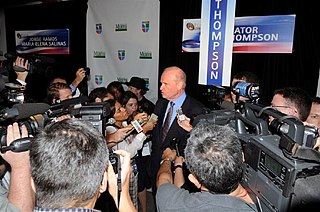 W
WA spin room, also known as spin row or spin alley, is an area in which reporters can speak with debate participants and/or their representatives after a debate. The name refers to the fact that the participants will attempt to "spin" or influence the perception of the debate among the assembled reporters. The benefit for reporters is that they quickly get in-person interviews with debaters or their representatives, complete with audio, video, and photos. For a U.S. presidential debate, the number of reporters in the spin room can number into the thousands.
 W
WThe two-step flow of communication model says that most people form their opinions under the influence of opinion leaders, who in turn are influenced by the mass media. In contrast to the one-step flow of the hypodermic needle model or magic bullet theory, which holds that people are directly influenced by mass media, according to the two-step flow model, ideas flow from mass media to opinion leaders, and from them to a wider population. Opinion leaders pass on their own interpretation of information in addition to the actual media content.